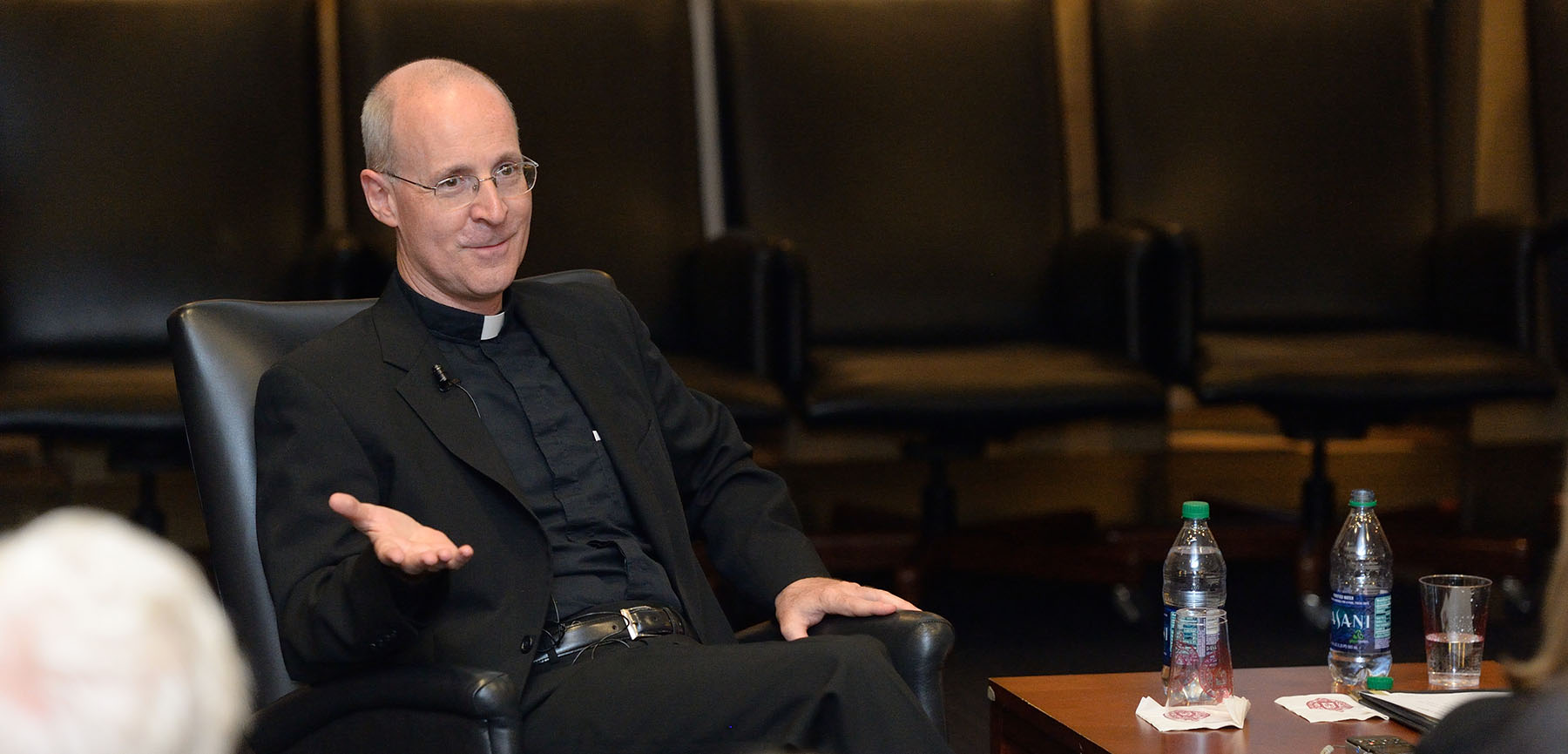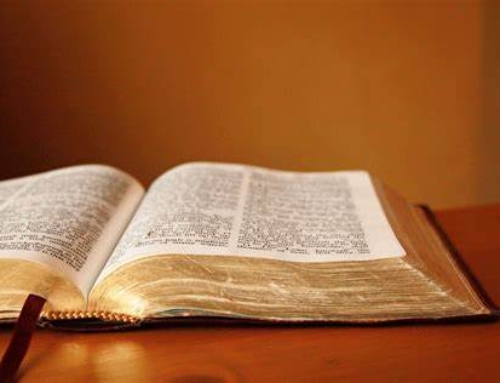Fr Martin has been tweeting some more anguished messages about how we should not blame all the good “celibate gay priests” for the sex abuse horrors.
I agree with him, but then I don’t think very many people are doing that.
Most Catholics are aware that some of our priests struggle with same sex attraction. In my experience most people are accepting and welcoming, while not condoning homosexual activity. I think Fr Martin is setting up a straw man here and suggesting that the current scandals are provoking a witch hunt against all people with same sex attraction. There may be a few extremists who are taking this line, but I don’t think many of us do.
Most Catholics simply agree with the teaching of the catechism that people with same sex attraction should be welcomed with respect, but that homosexual activity is a sin. We also want to be careful not to scapegoat a whole category of people. The anger people feel should not lead to stereotyping, scapegoating and injustice.
There is a second problem however, which I brought out in this post, and that is, I wonder why we should be obliged to call a priest “gay” if he is celibate. For most people “gay” is associated with the LGBTQ agenda, activism, gay pride parades, and the active gay lifestyle with all its outrageous expressions. Why should a priest who is celibate want or need to be identified as “gay”? If he’s celibate why does his sexual preference have to be an issue at all?
Some will assume that if a person with same sex attraction doesn’t “come out” and talk about it they must therefore be “in the closet” sexually repressed and some sort of uptight neurotic mess. But as I say in the article…
It could be that a celibate priest who experiences same sex attraction may well have become a mature, self actualized human being. He may well have come to accept his sexuality and finds his personality and ministry is fulfilled through his celibacy. To be truly well adjusted it seems to me that a person is not constantly talking about one’s sexuality. The truly well adjusted, mature and self accepting person realizes that he or she is more than his sexual preferences and simply gets on with life.
Indeed, as a priest, the man may quite rightly have a sense of dignity, modesty and respect for his parishioners. Why should he flaunt his sexuality in front of the children and devout old people of his parish? This doesn’t mean he is “in the closet” repressed and oppressed by homophobes. It might simply mean that he is a well adjusted, self disciplined, mature and modest person.
I wonder therefore, why Fr Martin insists on calling priests with came sex attraction “gay”? Why does he refer to them as “celibate gay priests” when the term “gay” most definitely does not imply celibacy in either the popular imagination or the gay pride movement?
I’m assuming by “celibate gay priest” Fr Martin means a priest with same sex attraction who is not sexually active, but then why does he need to be labelled as “gay”?
However, I wonder whether by “celibate” Fr Martin means something quite different than most Catholics do?
In an article for National Review Fr Benedict Kiely speaks about the unusual definition of “celibacy” he discovered soon after being ordained as a priest.
“Uncle Ted” McCarrick rose through the Church — and “everyone knew,” including many in the Catholic and secular press — and got a free pass for his abuse of minors precisely because of its homosexual character. During my seminary years I heard the nonsense, often spouted by members of religious orders vowed to chastity, that celibacy meant only “not getting married” and did not preclude sexual activity, although the Church’s teaching is clear that sexual activity outside marriage is illicit. I know of one famous cleric, now dead, who boasted (and it turns my stomach to think of a priest living so brazen a lie) of a male friend with whom he had sex regularly.
I can vouch for that. When I was a layman working for a Catholic charity in England I was in a different rectory every weekend and had plenty of face time with the priests. Most were good, solid, hard working men for whom I have great respect, but one man was clearly living with his concubine and another man had photos of himself and his boyfriend all over the rectory. My suspicions about both men were confirmed by another priest in their diocese who said, “these are the men who justify their relationships with the interpretation that ‘celibacy’ just means they can’t get married.
I suspect that was the interpretation of “celibacy” endorsed by the creeps in the PA report and their episcopal enablers.
I used to think this interpretation of celibacy and the activity associated with it was not widespread, but I am now starting to believe otherwise. If this is the case, then Richard Sipe’s observations (reported here) that widespread laxity in the observation of the vow of celibacy allowed for an atmosphere in which abuse was both commonplace and hushed up is understandable. The authorities turned a blind eye because they and so many of the other men they knew were also observing “celibacy” in that unusual manner.
But Mr. Sipe’s most far-reaching conclusion was that those two phenomena were linked. Failures of celibacy among church leaders, he argued, even if they happened with adults, created a system of hypocrisy and secrecy in which the abuse of minors could take place.
“Sooner or later it will become broadly obvious that there is a systemic connection between the sexual activity by, among and between clerics in positions of authority and control, and the abuse of children,” Mr. Sipe wrote in a letter to Bishop Robert W. McElroy of San Diego in 2016. (be warned. the linked letter is explicit and v. distressing to read.)
“When men in authority — cardinals, bishops, rectors, abbots, confessors, professors — are having or have had an unacknowledged-secret-active-sex life under the guise of celibacy, an atmosphere of tolerance of behaviors within the system is made operative.”
Does Fr Martin’s definition of “celibacy” jive with the other progressive’s definition? If so, perhaps by a “celibate gay priest” Fr Martin actually means a gay priest who tries to restrain himself and only have sex with his boyfriend on their day off and when they go on a gay cruise together. Is this what he means by “celibate gay priest”?
It would seem so. On page. 216, para 4 of his little book, The Jesuit Guide to (Almost) Everything Fr Martin defines celibacy as “the restriction against marriage for members of the Catholic clergy.”
Check out how sneaky this is. Most Catholics, assuming that celibacy means “you keep your pants on and you sleep alone” would read Fr Martin’s definition and conclude that is what he meant. But that is not what he meant. He meant what he said, “celibacy means not getting married.”
His flexible definition would be consistent with what many in the LGBTQ movement mean by “marriage”. When I asked a gay Anglican priest I’ll call Larry what kind of relationship he had with his “husband” Steve, he admitted that they had tried monogamy but found it impossible so they now had an “open relationship” and the main rule was that they talked together about the different men they had been with. “Honesty is the key guideline” he explained. “Its the lying and deceitfulness in a relationship which destroys trust.”
It would seem that Larry and Steve’s arrangement is not unusual as Joseph Sciambra reports here:
According to numerous studies, the majority of so-called “monogamous” same-sex male relationships are actually open negotiated partnerships which allow sex with outside partners.
If many gay partners who are “married” have an understanding of marriage that allows for multiple partners and what anyone else would call “adultery” should we be surprised that promiscuous priests have a definition of “celibacy” that is actually the opposite of the received definition?
So when Fr Martin talks about “celibate gay priests” I hope we’ll be forgiven for wondering what what exactly he means by “celibate”.
One wonders did ex-cardinal McCarrick have the same definition of “celibacy”? Is that why he behaved the way he did, and why others overlooked his “disappointing failures”?
Did the gay priests in Pennsylvania have that definition of “celibacy”?
Furthermore, if Fr Martin’s definition of “celibate” is iffy, shall we conclude that his supporters Cardinal Farrell, Cardinal Cupich, Bishop McElroy and Cardinal Tobin are in agreement and that they also condone this secret and specialized definition of “celibacy”?
I wonder whether I ought to ask these questions, especially as I am a married priest, but on the other hand, as a married man, I wonder what my wife would think if my definition of marriage meant that I slept around with lots of other women, but because I didn’t marry any of them I was being faithful to her.
You see my point.
These are tricky times, and I hesitate to write about these matter since all of us–married and single alike–are involved in the great work of achieving chastity. Nevertheless, since some priests do have an ambiguous understanding of celibacy that is most certainly one of the causes of the present disaster.







[…] conundrum prompted me to write this post in which I ask, therefore, what Fr Martin actually means by “celibate”. I suggested […]